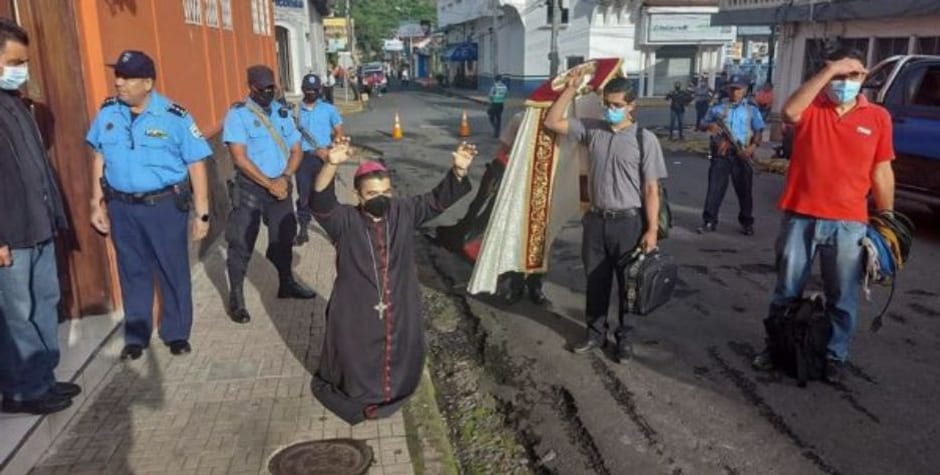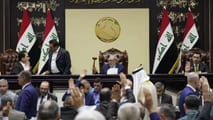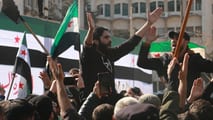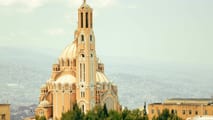

Persecution of Christians: 7 Countries Under the UN’s Eye
Persecution of Christians: 7 Countries Under the UN’s Eye
The European Centre for Law and Justice (ECLJ) has presented fourteen reports to the United Nations during the 47th session of the Universal Periodic Review (UPR). The UPR is a little-known but functional and interesting mechanism: all UN member states must justify their respect for human rights by presenting a report every four years. In response, all other states and accredited NGOs can make observations, criticisms, or point out falsehoods in what the examined states assert.
This is the purpose of the reports that the ECLJ recently submitted with the specific objective of identifying violations of religious freedom and acts of persecution against Christians in seven of the fourteen countries undergoing review this time. Apart from Bhutan and Brunei, the other countries studied—Nicaragua, Qatar, Ivory Coast, North Korea, and the Democratic Republic of the Congo—are parties to the International Covenant on Civil and Political Rights. Article 18 of this covenant states that "everyone shall have the right to freedom of thought, conscience and religion" and "no one shall be subject to coercion which would impair his freedom to have or to adopt a religion or belief of his choice." Article 27 adds protection for the rights of minorities.
Most of the countries observed by the ECLJ have a direct responsibility for the violation of religious freedom due to their restrictive laws and practices. However, states are not the only ones responsible for these persecutions. Independent armed groups, non-Christian religious communities, or even families of new converts are also sources of numerous persecutions.
Legal Obstacles to the Practice of the Christian Religion
In Bhutan, Christians and churches are not legally recognized. The faithful hide from the public and sometimes even from their families to practice their faith and, for example, buy their Bibles in secret. In 2022, the Government registered 139 religious’ organizations, of which 137 were Buddhist and two Hindu, but none were Christian. Furthermore, wearing Christian religious symbols is prohibited. In 2019, a leader of an underground church was sentenced to 13 years in prison for wearing a distinctive symbol in public. In April 2023, the Government took new measures to further restrict the freedoms of Christians, such as requiring local authorities to ban any religious gathering or activity that does not conform to Bhutanese traditions.
In North Korea, although the Constitution guarantees freedom of religion, the law on the rejection of the ideology and culture of the Democratic People's Republic of Korea condemns anyone who possesses books or listens to radio broadcasts from hostile countries. Access to employment, education, and food is restricted for them. Christians cannot gather to practice their faith, even in their homes, under penalty of being sent to labor camps or killed. Each arrested Christian is treated as a political prisoner and transferred to overcrowded forced labor camps, called "Kwan-li-so," meaning "total control zone." They work more than 16 hours a day without food. Imprisoned children work up to 12 hours, and no one comes out of these camps. In 2022, it is estimated that 70,000 Christians were imprisoned because of their faith (17.5% of the country's Christian population). Among the imprisoned Christians, a two-year-old girl was sentenced to life imprisonment because her parents owned a Bible. When they are not imprisoned, Christians are executed. In April 2022, several Christians discovered in an underground church were killed on the spot.
In Nicaragua, the Catholic Church is perceived as a "destabilizing agent." Since 2018, government repression has resulted in over five hundred attacks against the Church (home sequestrations, imprisonment of priests and bishops, confiscations of ecclesiastical property, encirclement of churches to prevent services, etc.). Priests, considered traitors to the homeland, "killers," or even "coup plotters," limit their activities and censor their sermons for fear of being accused of "civil disobedience." In 2022, Archbishop Waldemar Stanislaw Sommertag, the Pope's nuncio, was expelled from the country, and Bishop Mgr. Alvarez was sentenced to 26 years in prison without trial. The legal status of the Missionaries of Charity and the Jesuits was revoked, and the Jesuit University of Central America in Nicaragua was closed. The bank accounts of several dioceses were frozen "for illegal activity in the management of funds."
Brunei's Constitution recognizes Islam as the official religion, stating that all religions can live in harmony. However, the Government persecutes Christians and continually adopts new legislative measures to restrict their rights. An ordinance from 2013 that came into force on April 3, 2019, regarding Sharia penal law provides severe penalties for non-Muslims seeking to practice their faith. Christian celebrations, the public display of religious decorations, and the importation of Bibles are prohibited. Police enter homes hiding prayer meetings to prevent Christians from practicing. Churches are registered as secular businesses. A blasphemy law penalizes questioning Islamic teachings.
Prohibition of Proselytism
In Qatar, Islam is the official religion. Proselytism, which involves sharing a religion other than Islam, is prohibited. Christians are not allowed to wear religious symbols in public, such as crosses. Priests do not have the right to marry non-Christians, evangelize them, or baptize the descendants of non-Christians. Apostasy is illegal and punishable by death, although no executions have been recorded since 1971. Leaving Islam results in a loss of legal status and causes difficulties for Christians in everyday life. In Bhutan, Buddhism is enshrined in the Constitution as the spiritual heritage of the country, and any other form of religion than Buddhism is prohibited. Therefore, Christians cannot own churches, conduct religious activities in public, or talk about their faith without being accused of proselytizing.
Because they are classified in the category of "hostile" population according to the Songbun system, Christians in Korea are considered bad and do not have the right to talk about their religion. The Government conducts propaganda campaigns against Christians and encourages children to report their Christian parents to their teacher. In Brunei, Muslim converts to Christianity have their children taken away and are forced to undergo rehabilitation programs in Islam.
Persecutions by Independent Armed Groups
In the Democratic Republic of the Congo, Christians are widely persecuted not by the state but by a group of illegal armed forces known as the Allied Democratic Forces (ADF), allied with ISIS. In 2021, the ADF resorted to ruthless killings, abductions, and rapes against Christians, in eastern Congo, killing 1300 civilians. According to the regional director of the Association for Christian Theological Education in Africa, Christians are massacred "like animals." Between 2020 and 2024, all serious acts committed against Christians came from the ADF. They attack churches to murder Christians inside, including pastors, women, and children. Villages are also targeted by the ADF, which burns health centers, forces civilians to move, and kills or hacks to death villagers who do not convert to Islam in front of them. Fortunately, the Government is trying to limit the persecutions committed by the ADF. In 2023, it made 702 arrests and executed one thousand members of the ADF and took several other actions against this group.
In Ivory Coast, visible persecutions against Christians come not from armed groups but from families or religious communities. These are families of Muslims, one of whose members has converted to Christianity, and for which the parents have opposed baptism. Converts are often victims of social ostracism, either because they share their faith or because they refuse to renounce it.
By Jeanne Roger











